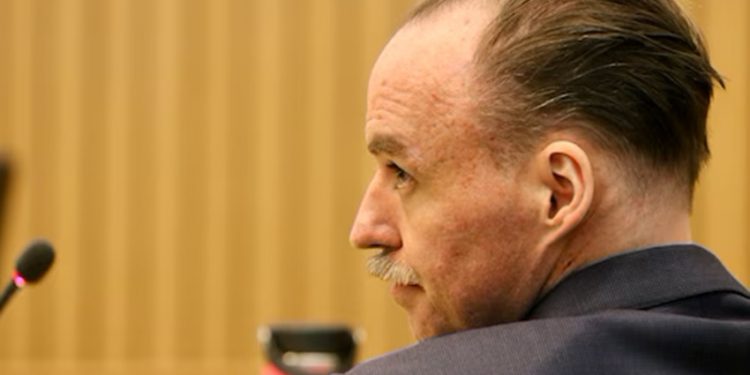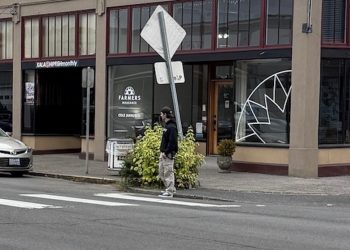Portland, OR — Closing arguments were delivered Wednesday in the trial of Geoffrey Hammond, who is facing murder charges for a deadly road-rage shooting in downtown Portland in October 2023. The shooting left one man dead and another injured, setting the stage for the jury to deliberate on whether Hammond’s actions were an act of self-defense or a criminal escalation of a traffic dispute.
The incident occurred on October 15, 2023, near the Moxy Hotel at Southwest 10th Avenue and Alder Street. According to prosecutors, Hammond was idling in his car, which was partially blocking traffic. Behind him, a pickup truck driven by 41-year-old Ryan Martin came to a stop. The two drivers exchanged words before Martin, who was unarmed, walked up to Hammond’s vehicle and tapped on the window while shouting.
Prosecutors argue that Hammond, who was seated in his car, responded by rolling down his window and shooting Martin in the chest. Martin was pronounced dead shortly after the shooting. Moments later, Hammond allegedly fired again, striking another man, Sam Gomez, who was also in the area. The bullet went through Gomez’s leg, leaving him injured but alive.
A witness who was staying at the Moxy Hotel captured the incident on video, providing key evidence in the case. The video reportedly shows Hammond shooting Martin at close range and, moments later, firing at Gomez. Prosecutor Brad Kalbaugh characterized Hammond’s actions as unreasonable, arguing that “any reasonable person in the position of Geoffrey Hammond would not have shot Ryan Martin to begin with,” nor would they have attempted to clear a jam in the gun and shoot again. Kalbaugh added that the shooting of Gomez, which occurred nearly two minutes after Martin’s death, was also unwarranted and unjustified.
“The escalation of violence here is shocking,” Kalbaugh told the jury during closing arguments. “This is not self-defense. This is a reckless and deadly response to a brief, verbal altercation.”
In contrast, defense attorney Joseph Westover argued that Hammond acted in self-defense, believing that he was about to be attacked by Martin. Westover claimed that Hammond’s fear of imminent harm was real and justified, pointing to the heated exchange between the two drivers as evidence of an escalating threat.
“Geoffrey Hammond is not guilty because he was acting in justified self-defense,” Westover said in his closing statement. “What that means is he had an honest belief that he was about to be the subject of violence. Serious violence.”
The jury is now tasked with determining whether Hammond’s actions meet the legal criteria for self-defense or whether he overreacted and escalated the situation to the point of lethal force.
The trial has sparked significant public interest, highlighting issues surrounding road rage, self-defense laws, and the use of firearms in confrontational situations. If convicted, Hammond could face significant prison time, including a potential sentence for murder.
As the trial nears its conclusion, the fate of Geoffrey Hammond rests in the hands of the jury.














